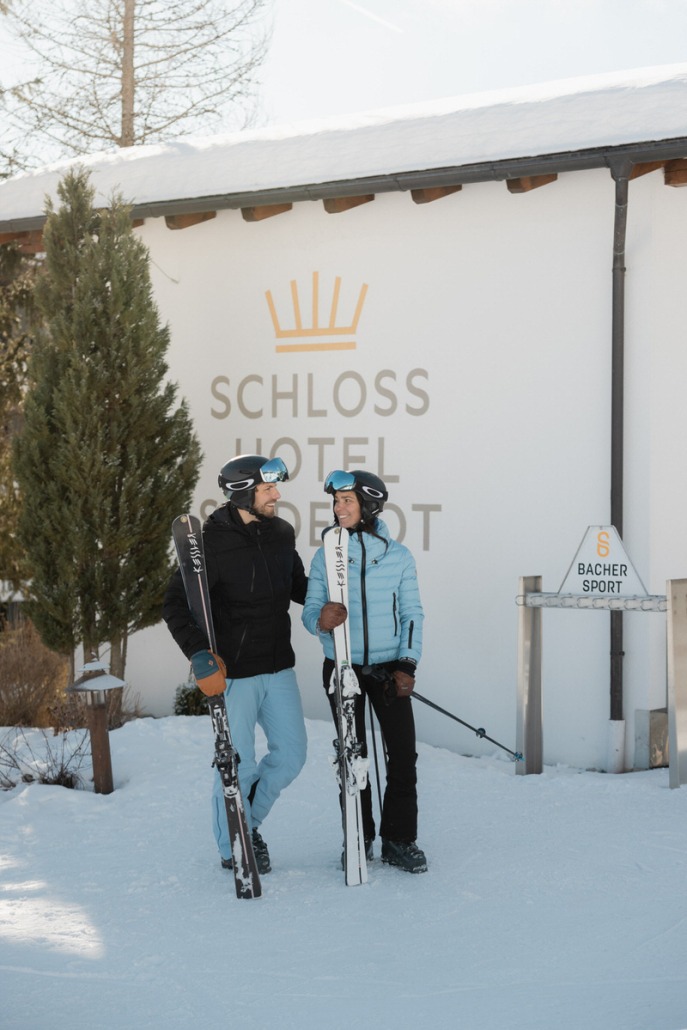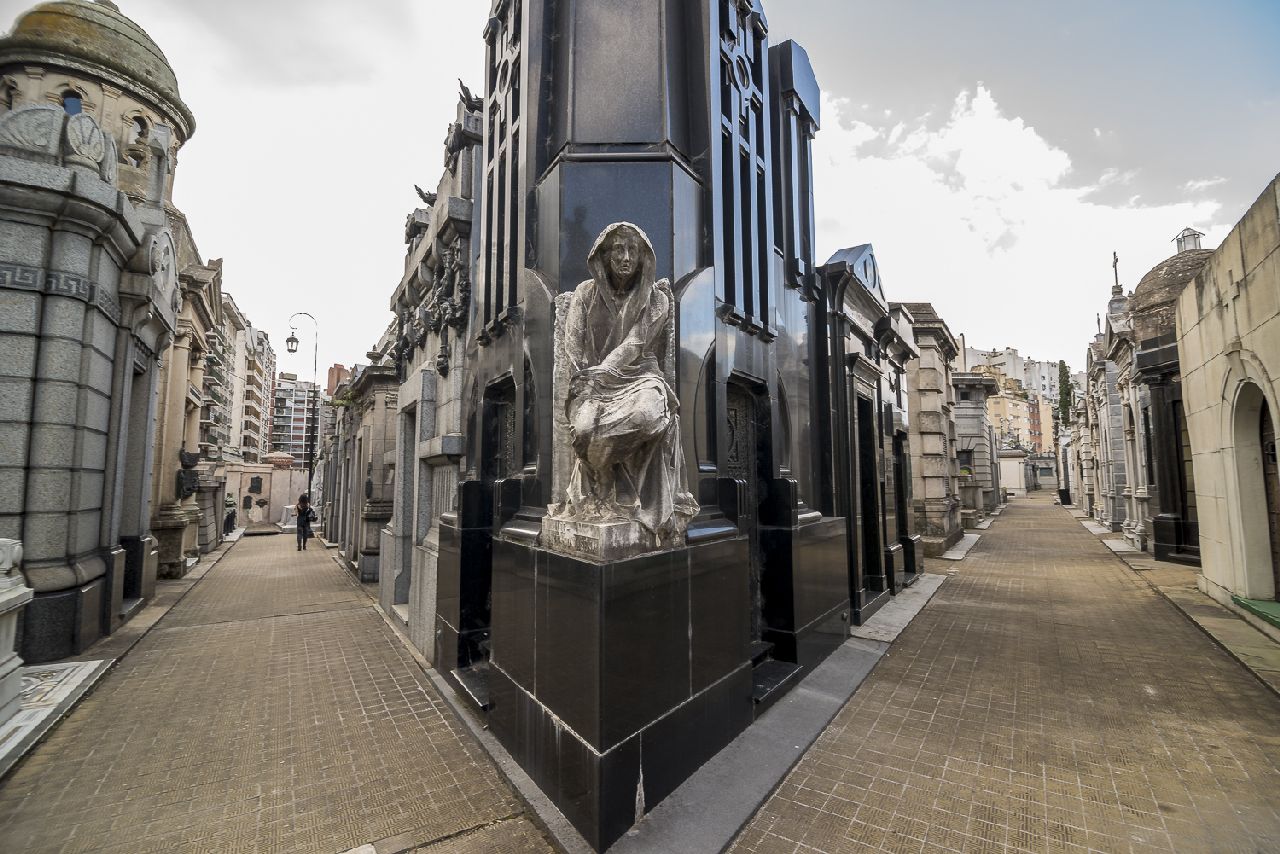A detailed foray into Alpine elegance, this article takes you through the layers of experience at Schlosshotel Fiss, set high in the Tyrolean Alps. We explore architecture, cuisine, service, and the surrounding landscape with insights that go beyond the surface, offering a nuanced view of why this hotel stands out in a region rich with winter magic and summer serenity. For a direct gateway to the source review, readers can reference the original write-up at https://www.thetravelmagazine.net/hotel-review-schlosshotel-fiss-tyrol-austria/, which serves as a companion lens to the personal impressions and broader context shared here.
Introduction
In the heart of the Tyrolean mountains, Schlosshotel Fiss embodies a blend of historical charm and modern comfort. The hotel’s architecture nods to aristocratic sensibilities while embracing contemporary design language that prioritizes warmth, practicality, and a sense of occasion. This article unpacks the experience across several dimensions: the physical space and design philosophy, the sensory feast of food and drink, the spa and wellness ecosystem, and the nature-driven activities that frame a stay here. Rather than merely listing amenities, I offer an experiential map—where do you linger, what feels authentic, and how does the setting shape the mood of a visit? By weaving personal observations with contextual insights about Tyrol’s hospitality culture, the piece aims to illuminate why Schlosshotel Fiss is more than a place to sleep; it’s a corridor to a mood, a memory, and a renewed sense of pace.
Note: The central thread of this piece is the idea of immersive comfort—how space, service, and landscape collaborate to make a stay feel effortless yet deeply resonant. The highlight of the journey is not just the destination but the cadence of days spent among pine scent, alpine light, and quietly luxurious details. The key reference to the official review can be found at the linked source above, which provides a complementary framework for understanding the property’s positioning within Tyrol’s hotel ecosystem.
The Architecture and Atmosphere of a Tyrolean Castle Retreat

Before you step through the door, the exterior announces its intent—a castle-like silhouette perched against a backstory of centuries-old alpine life. The approach to Schlosshotel Fiss is designed to prime a mood of ceremonial welcome without pomp, a balance that is difficult to sustain in the luxury segment. The building’s massing—towers, stonework, timber inflections—speaks to a lineage of mountain estates while the interior reveals a more intimate, human-scaled atmosphere. In this section, I examine how architectural choices translate into guest behavior and experience, shaping everything from navigation to sensory perception.
The Grand Entrance and Sense of Place
The first impression matters, and the lobby succeeds by offering a curated sense of arrival. The monumental doors swing open with a subtle ceremonial gesture, and the lobby unfolds like a warmly lit drawing room rather than a cold hall. The contrast between exterior ruggedness and interior softness creates a dynamic tension that is inviting rather than intimidating. The décor borrows from Tyrolean motifs—embroidered textiles, carved wood, and muted earth tones—without falling into cliché. The result is a space that feels authentic yet thoughtfully modern, a crucial distinction for a property that must honor its heritage while serving a contemporary audience.
The experience of time slows here, aided by the perceptible care in small details: a curated scent of warm resin and resinous wood, soft lighting that flattens harsh angles, and seating clusters that encourage conversation or quiet contemplation. From a design perspective, the lobby acts as a living framework for the stay—an anchor point from which every other moment radiates. This intentional design continuity is not merely aesthetic; it informs the pace of things, guiding guests toward leisurely rhythms rather than frenetic activity.
The Interior Narrative and Materiality
Inside, the material palette—oak floors, stone accents, velvet upholstery—speaks to durability and comfort in equal measure. The architecture uses materials that age gracefully, inviting touch and lingering gaze. There is a deliberate tension between formality and warmth: chandeliers with a regal silhouette hang over seating that invites casual conversation; heavy drapes frame windows that offer postcard views of snow-dusted peaks. The interior language is cohesive, and that coherence translates into a sense of security for guests—a sanctuary where the nervous energy of travel can dissipate.
From a personal standpoint, the tactile quality matters. Running fingers along a carved banister or sinking into a plush lounge chair after a long journey feels trivial yet essential. The hotel succeeds because it makes the subtle, unseen pleasures—temperature balance, acoustics, the way light falls at golden hour—feel intentionally crafted rather than incidental. This is a hallmark of properties that understand how environment shapes mood; Schlosshotel Fiss demonstrates this fluently, turning architectural concept into actual lived experience.
Culinary Craft and the Food Scene in a Mountain Jewel

Food at Schlosshotel Fiss is more than fuel; it’s a narrative of the Alps, a tasting menu of local producers, seasonal produce, and a chef’s creative restraint. The dining spaces are designed to be social without being loud, formal without feeling exclusive, and intimate without isolating guests in a private dining room. In this section, I explore the culinary philosophy, the menu iterations, and the way meals contribute to the overall sense of well-being during a stay.
The Breakfast Ritual: Abundance with a Personal Touch
Breakfast at this property is a study in generous abundance harmonized with personal service. The spread is wide enough to accommodate varied appetites and dietary needs, yet curated with a thoughtful discipline that avoids culinary drift. Freshly baked breads, homegrown jams, mountain yogurts, and a rotating selection of regional cheeses create a canvas on which guests can craft their day’s first flavors. What elevates the experience is the attentiveness—staff remember preferences, offer clever substitutions, and maintain a pace that respects different morning rhythms.
From a sensory standpoint, the breakfast room is a daylight-soaked space that invites long, unhurried meals. The aroma of coffee lingers pleasantly, mingling with the scent of citrus from squeezed juices and the warmth of pastry crusts. The effect is a gentle warm-up for the day that feels nourishing rather than indulgent, setting a positive tone for outdoor activity or a leisurely spa afternoon.
Dinner Service and Seasonal Expression
Evening dining leans into a refined yet relaxed mood, a place where flavors echo the surrounding landscape. The kitchen leans on regional products—smoked trout from nearby streams, alpine herbs foraged in nearby meadows, and meat sourced from local producers with a transparent supply chain. The menu is a narrative of seasonality; it offers indulgence without excess, a confident balance that respects the land and the cook’s restraint. The wine program is well-curated, with a vertical emphasis on Austrian producers and a thoughtful selection of Italian and German references to complement the Alps’ culinary crossroads.
The dining room experience is enhanced by service that is both professional and personable. Waitstaff remember guests’ dietary constraints and preferences, guiding choices with a light touch rather than prescriptive suggestions. This approach to service—efficient, knowledgeable, and discreet—contributes to a sense of ease, turning meals into a space for conversation, discovery, and shared memory-building. Overall, the culinary expression aligns with the hotel’s broader philosophy: hospitality that elevates everyday moments into meaningful experiences without becoming performative.
Spa, Wellness, and the Quiet Art of Rejuvenation

Wellness is a core pillar here, and the spa offers a curated menu of treatments designed to renew body and mind after mountain activity or long travel. The design of the wellness spaces emphasizes serenity, privacy, and sensory nourishment. In this section, I look at the treatment roster, the thermal experiences, and how the spa integrates with the surrounding landscape to foster a holistic sense of well-being.
Thermal Oasis and Hydration Rituals
The thermal areas present a thoughtful progression: a steam room with a gentle humidity, a sauna ensemble with varying temperatures, and a relaxation lounge that doubles as a quiet social space. The hot and cold experiences cycle in a way that encourages mindful breathing and deliberate pacing, a small but powerful reminder of how body and environment respond to temperature shifts. Hydration stations, herbal infusions, and fresh fruit platters support the detox-like rhythm of a spa visit without turning relaxation into a clinical regimen.
What stands out is the emphasis on accessibility and inclusivity in spa design. The spaces are comfortable for guests with different mobility levels, and the layout allows easy navigation between quiet zones and social hubs. The result is a spa that feels luxurious yet approachable, a retreat that respects individual rhythms rather than imposing a one-size-fits-all template.
Treatments with a Regional Soul
The treatment menu leans into Alpine influences while showcasing modern techniques. Massages crafted with local oils, mountain-inspired facials, and signature rituals that pair aromatherapy with tactile work create a balanced portfolio. The best experiences here feel deeply personal: a therapist who tunes into your posture, breath, and energy, then adapts a routine to address exactly what your body needs in that moment. This level of attentiveness elevates the spa from a routine amenity into a transformative space where guests can reset physically while also finding psychological calm.
In a broader sense, the spa at Schlosshotel Fiss functions as a complement to the mountain environment: it gives guests permission to slow down, to honor soreness after a day on the slopes or a long hike, and to emerge with a renewed sense of clarity. The integration of indoor relaxation with outdoor scenery—views from the relaxation lounges that invite nature into the experience—is a subtle but powerful design choice that reinforces the spa’s role as a sanctuary within the larger hospitality framework.
Adventures, Nature, and the Alpine Playground

The Tyrol region is a living classroom for outdoor enthusiasts. Schlosshotel Fiss situates guests at the doorstep of a broad spectrum of activities, from winter sports to hiking and beyond. In these sections, I map the practicalities of access, the quality of guides and equipment, and the intangible thrill of being immersed in high-altitude nature. The aim is to present a balanced view of the resort’s activity ecosystem—what works flawlessly, what benefits from a bit more planning, and how the setting enhances every pursuit.
Winter Sports and Summit Energy
During the winter season, the snow-laden landscapes transform the region into a playground for skiers and snowboarders of varying levels. The hotel’s proximity to well-groomed slopes is a notable convenience, but the real value lies in how it supports guests through the entire day: a robust breakfast that fuels early starts, a late-afternoon return with locker facilities and warm beverages, and a dinner that helps recover from exertion with nourishing, hearty dishes. The ski concierge service adds a layer of reassurance—equipment fitting, route recommendations, and timely alerts about weather or trail conditions help guests feel guided rather than overwhelmed.
What resonates here is the sense that the hotel understands the rhythm of winter sport culture. It respects the discipline required by serious athletes while remaining accessible to families and casual visitors. The result is a versatile base that doesn’t force a single pace on the day, allowing guests to craft their own mountain experience with confidence.
Summer Trails and Alpine Biodiversity
In the warmer months, the same location reveals a different kind of energy. The hiking trails around Fiss are diverse—gentle valley paths for easy days, and rewarding high-altitude routes for more ambitious trekkers. The hotel can arrange guided excursions that highlight the region’s biodiversity, geology, and cultural heritage. The approach here is educational but never didactic: guides share observations about flora and fauna with the same ease as they discuss route logistics, creating a richer sense of place.
From a personal perspective, the best days involve a slow ascent, a picnic on a sun-warmed scree, and a descent that offers panoramic views worth the effort. The hotel’s access to local knowledge—affiliated guides, timely weather updates, and suggested itineraries—transforms a simple hike into a story you tell later with vivid detail. It’s this attention to the experiential arc—the way a day unfolds from morning energy to evening reflection—that elevates a Tyrolean stay beyond ordinary resort vacations.
A Stay That Feels Custom-Fitted: Service, Tech, and Personalization

Hospitality is often defined by how a property reads its guests and adapts in response. Schlosshotel Fiss excels in creating a sense of individualized attention without slipping into overt customization. In this section, I examine the operational philosophy, the role of technology in enhancing—not detracting from—the human touch, and the ways in which service becomes a partner in creating memorable moments.
Proactive Service and Subtle Anticipation
One of the most striking aspects of the staff experience is the balance between discretion and availability. Attentive servers, concierge staff, and housekeeping teams operate with a seamless cadence—never intrusive, always present when needed. Anticipatory service shows up in small but meaningful ways: a preferred room fragrance noted for a returning guest, a snack prepped to replace a postponed afternoon activity, or the readiness to switch a table when a guest wishes to extend a conversation rather than dine hurriedly.
This kind of service is rooted in a philosophy that values guest comfort as an ongoing dialogue rather than a series of transactional requests. The ability to foresee needs without eroding personal agency is what distinguishes high-end hospitality from luxury theater. For travelers who prize ease and emotional reassurance, this approach makes a tangible difference in how rested and cared-for they feel by the time they depart.
Technology as an Enabler, Not a Barrier
In the modern luxury hotel, technology can either facilitate connection or contribute to a sense of distance. Schlosshotel Fiss leans toward the former, deploying systems that streamline operations while preserving the intimacy of human interaction. Digital check-in and keyless access reduce friction at arrival, yet staff remain readily approachable for nuanced requests or spontaneous recommendations. In-room technology—lighting, climate control, entertainment—offers intuitive interfaces that require minimal learning curve, allowing guests to customize comfort quickly.
What stands out is a philosophy of restraint: technology is present to reduce effort, not to replace conversation. Guests who value privacy can opt out of automation; those who crave convenience can lean into it without feeling as if the guest experience has become impersonal. This calibrated use of tech helps maintain the hotel’s human-centered character, which is essential to a stay that feels both polished and personal.
The Destination and the Cultural Tapestry
Schlosshotel Fiss does not exist in isolation; it is embedded in the fabric of Tyrol, a region with a strong sense of place, tradition, and modern vitality. This section explores how the location informs the guest experience—from neighborhood character to seasonal events and the interplay between local culture and luxury hospitality. Understanding this context adds depth to the reading of the property and helps set realistic expectations for travelers.
A Village as a Living Room
Fiss itself functions as an inviting base camp for alpine adventures. The village offers a mosaic of shops, cafés, and small cultural touchpoints that feel genuinely local. Staying here gives guests a sense of immersion rather than distance from regional life. The hotel’s excursions, cultural briefings, and recommended routes help bridge the gap between the private sanctuary of the hotel and the lively backdrop of Tyrolean village life.
The appeal lies in the dynamic balance between exclusivity and accessibility. Guests can retreat to a high-design, high-comfort space while knowing that they are not cut off from the social texture of the place. This duality—private luxury with public charm—is part of what makes a stay at Schlosshotel Fiss so compelling for travelers who crave both respite and connection.
Seasonal Celebrations and Local Lore
Tyrol is rich with seasonal rhythms—winter festivals, harvest celebrations, and music traditions that infuse daily life with color and meaning. The hotel’s programming often aligns with these cycles, offering guests opportunities to participate in guided experiences, tastings, or performances that illuminate regional culture. This alignment is not about marketing moments; it’s about creating shared experiences that deepen appreciation for where you are.
From a storytelling perspective, these moments provide material that travelers will carry home—a sense of having witnessed a living culture rather than merely observed it. The hotel’s role as an anchor in this cultural ecosystem is understated but essential, ensuring that the guest’s memory of Tyrol remains vivid and nuanced long after departure.
Conclusion
Schlosshotel Fiss Tyrol Austria offers a multi-layered hospitality experience that blends architectural majesty with intimate comfort, culinary craft with regional authenticity, and wellness with outdoor vitality. The hotel’s design language and service philosophy cultivate a sense of ease that feels both luxurious and sincerely human, a rare combination in a market saturated with spectacle. The result is a stay that not only satisfies conventional expectations of luxury but also invites deeper reflection on the relationship between place, season, and personal well-being. For readers seeking a comprehensive sense of what makes this property distinctive—beyond the glossy brochure and into the lived day-to-day magic—the experience offers a compelling case study in how to balance tradition and modernity, solitude and sociability, and landscape-driven routines with refined, thoughtful service.
To explore the official write-up and obtain a distilled overview directly from the source, refer to the primary review at the linked URL above, which serves as a complementary lens to the detailed reflection provided here. In the end, Schlosshotel Fiss emerges as not merely a place to stay but a carefully curated gateway to alpine life—where architecture, gastronomy, wellness, and nature converge to offer a restorative, memorable, and distinctly Tyrolean escape.


